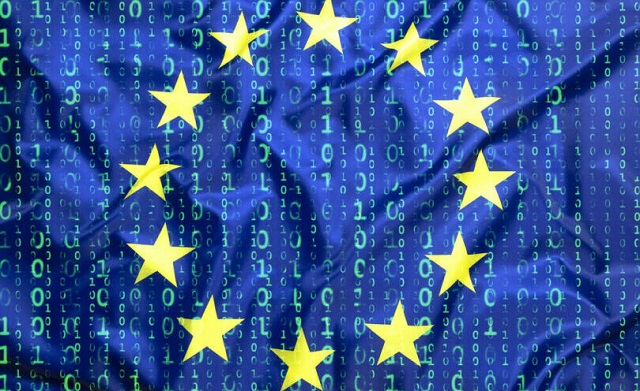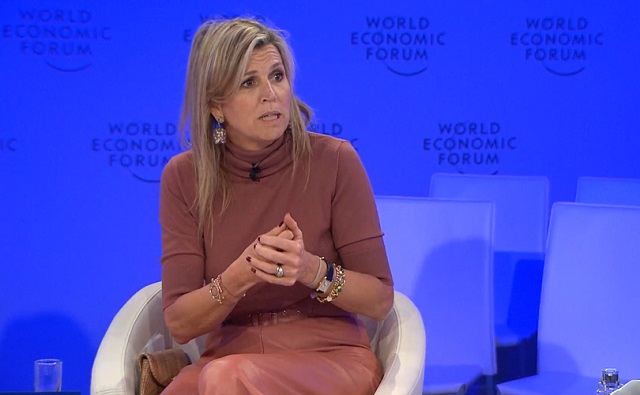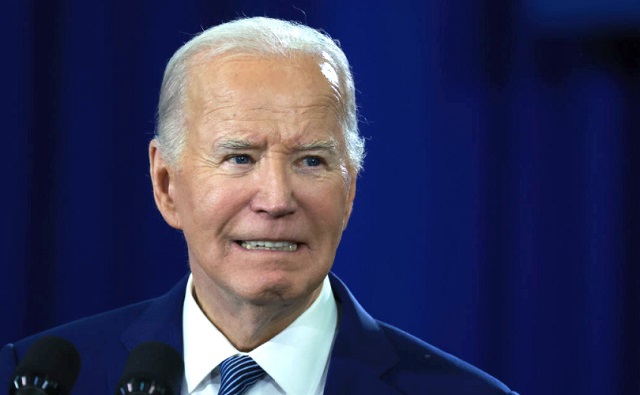Digital Currency
Thousands of political and business leaders gathering in Davos to promote their vision for our future

WEF social media video from 2016 that stated eight predictions about the world in 2030, including: “You’ll own nothing. And you’ll be happy. What you want you’ll rent, and it’ll be delivered by drone.” – Reuters
From the: World Economic Forum Annual Meeting
-
The Annual Meeting 2023 will take place in Davos, Klosters from 16-20 January.
-
The theme of the meeting is ‘Cooperation in a Fragmented World’.
-
The meeting will bring together 2,700 leaders from 130 countries including 52 heads of state/government.
Cooperation in a Fragmented World
Under the theme ‘Cooperation in a Fragmented World’, the Annual Meeting 2023 will bring together more than 2,700 leaders from government, business and civil society, at a pivotal time for the world.
Multiple crises are deepening divisions and fragmenting the geopolitical landscape. Leaders must address people’s immediate, critical needs while also laying the groundwork for a more sustainable, resilient world by the end of the decade.
“We see the manifold political, economic and social forces creating increased fragmentation on a global and national level. To address the root causes of this erosion of trust, we need to reinforce cooperation between the government and business sectors, creating the conditions for a strong and durable recovery. At the same time there must be the recognition that economic development needs to be made more resilient, more sustainable and nobody should be left behind,” said Klaus Schwab, Founder and Executive Chairman, World Economic Forum.
The programme of the 53rd Annual Meeting focuses on solutions and public-private cooperation to tackle the world’s most pressing challenges. It encourages world leaders to work together on the interconnected issues of energy, climate and nature; investment, trade and infrastructure; frontier technologies and industry resilience; jobs, skills, social mobility and health; and geopolitical cooperation in a multipolar world. Special emphasis is on gender and geographical diversity across all sessions.
Top political leaders taking part include:
Olaf Scholz, Federal Chancellor of Germany; Ursula von der Leyen, President of the European Commission; Roberta Metsola, President of the European Parliament; Yoon Suk-yeol, President of the Republic of Korea; Cyril M. Ramaphosa, President of South Africa; Pedro Sánchez, Prime Minister of Spain; Alain Berset, President of the Swiss Confederation 2023 and Federal Councillor of Home Affairs; Ilham Aliyev, President of the Republic of Azerbaijan; Alexander De Croo, Prime Minister of Belgium; Gustavo Francisco Petro Urrego, President of Colombia; Félix Tshisekedi, President of the Democratic Republic of the Congo; Sanna Marin, Prime Minister of Finland; Kyriakos Mitsotakis, Prime Minister of Greece; Leo Varadkar, Taoiseach of Ireland; Maia Sandu, President of the Republic of Moldova; Aziz Akhannouch, Head of Government of Morocco; Mark Rutte, Prime Minister of the Netherlands; Ferdinand Marcos, President of the Philippines; Andrzej Duda, President of Poland; Aleksandar Vučić, President of Serbia; Samia SuluhuHassan, President of United Republic of Tanzania; Najla Bouden, Prime Minister of Tunisia.
As well as:
John F. Kerry, Special Presidential Envoy for Climate of the United States of America; Avril Haines, US Director of National Intelligence; Martin J. Walsh, Secretary of Labor of the United States; Katherine Tai, United States Trade Representative; Chrystia Freeland, Deputy Prime Minister and Minister of Finance of Canada; Christine Lagarde, President, European Central Bank.
Heads of international organizations taking part include:
Antonio Guterres, UN Secretary-General; Kristalina Georgieva, Managing Director, International Monetary Fund; Ngozi Okonjo-Iweala, Director General, World Trade Organization; Jens Stoltenberg, Secretary General, North Atlantic Treaty Organization; Tedros Adhanom Ghebreyesus, Director General, World Health Organization; Fatih Birol, Executive Director, International Energy Agency; Catherine Russell, Executive Director, UNICEF; Mirjana Spoljaric Egger, President, International Committee of the Red Cross.
This year will bring about the highest ever business participation at Davos, with over 1,500 leaders registered across 700 organizations, including over 600 of the world’s top CEOs form the World Economic Forum’s Members and Partners, with top-level representation from sectors such as financial services, energy, materials and infrastructure, information and communication technologies. They come as governments increasingly look to business to take big ideas and put them into action quickly and inclusively. There will also be a strong representation of Global Innovators who are transforming industries, with more than 90 mission-driven leaders from the Forum’s Technology Pioneers and recently launched Unicorn communities.
Leaders from civil society taking part in the meeting include:
Seth F. Berkley, Chief Executive Officer, Gavi, the Vaccine Alliance; Stephen Cotton, General-Secretary, International Transport Workers’ Federation; Christy Hoffman, General-Secretary, UNI Global Union; Hindou Oumarou Ibrahim, President, Association for Indigenous Women and Peoples of Chad; Azza Karam, Secretary-General, Religions for Peace; Oleksandra Matviichuk, Nobel Peace Prize Winner 2022 and President, Centre for Civil Liberties; David Miliband, President, International Rescue Committee; Luisa Neubauer, Climate Activist, Fridays for Future Movement; Kirsten Schuijt, Director-General, WWF International; and Gurudev Sri Sri Ravi Shankar, Founder, Art of Living Foundation.
Among the new initiatives at the Annual Meeting is the Global Collaboration Village, a purpose-driven metaverse that fosters more sustainable public-private collaboration and spurs action to deliver impact at scale. The first-ever metaverse multilateral meeting hosted by the Forum will bring together experts and leaders from finance, food and retail to drive action on ocean health and seafood waste.
This year more than 160 of the Forum’s civic-minded young leaders will join as members of our Global Shapers, Young Global Leaders and Social Entrepreneurs communities. We will also welcome nine Indigenous leaders bringing the knowledge and expertise of their communities to advance regional and global efforts in ecosystem restoration, inclusive trade and sustainable development.
More than 125 experts and heads of the world’s leading universities, research institutions, and think tanks will join the Meeting, bringing the latest facts, insights, science, and data into the programme and the Forum’s work.
The Arts and Culture programme features a number of sessions and immersive art installations on the preservation of coral reefs, displaced peoples and the global refugee crisis, gender equality and female empowerment, and global sea-level rise. It will include the 27th Annual Crystal Awards and our Cultural Leaders.
This year is the 20th anniversary of the Open Forum, which welcomes diverse people from around the world to listen and share experiences with experts and leaders on pressing issues. The theme is, Our Environment: Lessons, Challenges and Opportunities. For more information, click here.
The 53rd Annual Meeting will also be climate-neutral for the sixth consecutive year. New initiatives to boost resource efficiency and reduce emissions will build on the Forum’s 2018 ISO 20121 certification for sustainable event management. Learn more about our strategy and efforts here.

Example of a typical session sees varied personas such as the President of Columbia and former US VP Al Gore speaking with three environmentalists, three business leaders, the President of the National Congress of American Indians, and internationally renowned cellist Yo-Yo Ma talking about “Leading the Charge through Earth’s New Normal”. Here is that agenda item:
—
Leading the Charge through Earth’s New Normal
The world is undergoing interacting crises in food, energy, health and nature that are threatening our way of life and accelerating us towards a global catastrophe.
What visionary leadership is needed for systems thinking, transformative solutions and global collaboration to build a more inclusive, prosperous and sustainable future?
Public Speakers
Joyeeta Gupta
Professor of Environment and Development in the Global South, University of Amsterdam
Johan Rockström
Director, Potsdam Institute for Climate Impact Research (PIK)
Roshni Nadar Malhotra
Chairperson, HCL Technologies Ltd
Al Gore
Vice-President of the United States (1993-2001); Chairman and Co-Founder, Generation Investment Management LLP
Gustavo Francisco Petro Urrego
President of Colombia, Colombia Government
Marc Benioff
Chair and Co-Chief Executive Officer, Salesforce
Andrew Forrest
Chairman and Founder, Fortescue Metals Group Limited
Fawn Sharp
President, National Congress of American Indians
Yo-Yo Ma
Cellist
Gim Huay Neo
Managing Director, Centre for Nature and Climate, World Economic Forum Geneva
Business
How the EU could combine carbon passports, digital ID, and social credit for every product

From LifeSiteNews
The European Union is going deep with its plans to introduce digital IDs across industries. Tying a form of digital ID to all products would make the introduction of carbon social credit scores easier to implement.
The concept of “carbon passports,” proposed as a measure to combat climate change, has, for a while now, raised significant concerns regarding civil liberties. These passports are designed to track an individual’s carbon footprint, including travel, energy consumption, and lifestyle choices. While their intention is to encourage environmentally friendly behaviors, they present a substantial threat to personal privacy by enabling continuous monitoring of personal activities.
This intrusion into privacy is not the only issue; carbon passports could potentially lead to discriminatory practices. Those in lower-income brackets, who often have limited access to green alternatives, might find themselves unfairly penalized. This system risks exacerbating social inequalities by disproportionately affecting those less financially equipped to make eco-friendly choices.
Furthermore, carbon passports could restrict movement and personal autonomy. Limiting travel or certain activities based on carbon usage might create a situation where only the wealthy, who can afford carbon offsets or sustainable options, maintain their freedom. This scenario paints a disturbing picture of environmental responsibility being accessible only to those with financial means.

Another concern is the centralization of power in the hands of entities controlling the carbon data. This centralization could lead to a slippery slope where tools designed for climate control evolve into instruments of more oppressive surveillance and control. The balance between addressing environmental concerns and maintaining civil liberties is delicate and crucial.
As part of the push towards carbon passports, a new idea – tying a form of digital ID to all products is also being pushed. It makes the introduction of carbon social credit scores easier to implement.
The European Union is going deep with its plans to introduce digital IDs (in this case, “digital product passports, DDPs”) across industries. DDPs specifically refer to apparel, accessories and electronics.
Brands are now starting to work on integrating the tech – that the European Commission says is necessary for the greater good of citizens, such as meeting “sustainability goals” – the so-called green deal, carbon emissions, all the things – and then there’s access to services and contactless payment.

Critics, on the other hand, say it’s simply yet another way to abuse consumers by harvesting even more of their data. The opponents’ fears appear to rely on solid facts since some of the data collected thanks to the EU’s proposed scheme will profile people based on their behavior, preferences, and even the value of their “resale profile.”
The deadline mentioned is as early as 2026 – that’s how soon brands would have to incorporate digital passports into their products.
And, don’t expect any resistance from brands. Reports are saying that they are working hard to meet the deadline of meeting what is referred to as the European Commission’s “real-world uses for digital identities.”
READ: EU claims digital ID wallet will be voluntary. India said the same before it became mandatory
On the side of the fashion industry, there will be the need to let the EU know – no longer voluntarily – about how they manufacture items, organize their supply chains, and the materials used.
Well, don’t expect brands to only implement the tech to make the EU feel good about itself. “Brands currently testing the technology are figuring out ways for it to collect customer data and add perks beyond the point of purchase,” writes Vogue Business.
Already trying to go a step above linking physical items with digital identity – as is the case with QR and NFC – and meet EU goals are the likes of Balenciaga, RealReal, and Boss, the article mentions.

And unlike that “old tech” that was there mostly to facilitate and protect transactions, manufacturers and customers, Mojito CEO Raakhee Miller had this interesting take on what’s referred to as the upcoming, “physical first” method: it “not only enhances the product’s value,” said Miller, “but also deepens consumer engagement.”
So, how deeply does the EU – and brands following its diktat – want to “engage” customers, other than people handing over money for a product they buy? This is where what’s basically data harvesting and mining comes into play, even if it is explained in fancy (and unsurprisingly, equally meaningless) terms like “phygital goods” and “metaverse approach.”
But, so to speak, the proof is in the word salad: the point is to have services and use cases “more anchored in client needs.” And clearly, to know what those needs are, one must first better know the client. Meaning, beyond what the client is currently comfortable sharing with multinational conglomerates.
Can’t we all just buy what we want, and move along? Please?
Not so fast, the EU says, and people like Vestiaire Collective VP of Partnerships Laura Escure explain it by no less than what might seem to many as basically questioning the customers’ cognitive abilities.
“The barriers around Web3 were not helping consumers to think thoroughly about luxury,” Escure is quoted.
READ: World Bank president advocates global digital ID scheme at tech summit
And did you know that if you dish out a lot of money on a luxury product, there’s a whole “story” behind it – beside the one in your bank statement? That’s how Aura Blockchain Consortium CEO Romain Carrere wants you to think about the situation.
“We believe in a future where every customer feels connected to the story behind their products, and the DPP is the key to unlocking that narrative. It’s not just a digital passport, it’s a journey of trust and empowerment for every consumer,” said Carrere.
But mostly, it would seem, it’s a narrative. There to empower itself, and those in positions of power, rather than the customer.
Back in EU’s bureaucracy, the digital product passport proposals first saw the light of day in the spring of 2022, naturally, as “sustainability” enhancing mechanisms related to products, and about a year later, this was officially presented on the European Commission website as a way to share key information about a product.
The information would be shared “across all the relevant economic actors,” a press release said in May 2023. Things are happening in this space under the Proposal for Ecodesign for Sustainable Products Regulation (ESPR).
The EU claims its goals are to boost what it calls circular economy, material and energy efficiency, and extend product lifetimes, as well as the way waste from those products is eventually handled.
The bloc also declares some grand ambitions here – like creating new business opportunities – “based on improved data access,” though.
And the EU is not above putting down consumers either, while at once working to elevate the level of data scrounged off of them. The DDP scheme, the Commission says, will “help consumers in making sustainable choices.”
And, for now – “allow authorities to verify compliance with legal obligations.”
Reprinted with permission from Reclaim The Net.
CBDC Central Bank Digital Currency
Davos 2024: Queen Maxima advocates global digital ID for financial services, vaccine verification

Queen Maxima of the Netherlands
From LifeSiteNews
Digital IDs are ‘good for school enrollment; it is also good for health – who actually got a vaccination or not; it’s very good actually to get your subsidies from the government,’ Queen Maxima of the Netherlands stated at the 2024 Davos summit.
Queen Maxima of the Netherlands tells the World Economic Forum (WEF) in Davos that digital ID is good for knowing “who actually got a vaccination or not” and for financial inclusion.
On Thursday the Dutch queen continued her crusade to see universal adoption of digital ID because she believes it is good for everything from opening a bank account to enrolling in school and for providing proof of vaccination, aka “vaccine passports.”
It [digital ID] is also good for school enrollment; it is also good for health – who actually got a vaccination or not; it’s very good actually to get your subsidies from the government.
Speaking at the WEF annual meeting panel entitled “Comparing Notes on Financial Inclusion,” Her Majesty said:
In order to open up an account, you need to have an ID. I have to say that when I started this job, there were actually very little countries in Africa or Latin America that had one ubiquitous type of ID, and certainly that was digital and certainly that was biometric.
We’ve really worked with all our partners to actually help grow this, and the interesting part of it is that yes, it is very necessary for financial services, but not only.
Queen Maxima of the Netherlands at WEF in Davos: [Digital ID] is very necessary for financial services, but not only – it is also good for school enrollment; it is also good for health — who actually got a vaccination or not" #DigitalID #WEF24 https://t.co/DJiO8nISih pic.twitter.com/RgYA2ahXS0
— Tim Hinchliffe (@TimHinchliffe) January 18, 2024
Beyond financial services, Queen Maxima said that digital ID was good for proving an individual’s vaccination status:
It is also good for school enrollment; it is also good for health – who actually got a vaccination or not; it’s very good actually to get your subsidies from the government.
The Dutch queen also highlighted that for the past 10 years, she had been working on developing Digital Public Infrastructure (DPI), which is a digital stack consisting of digital ID, digital payments systems like Central Bank Digital Currencies (CBDCs), and massive data sharing.
“We’ve been working in the last 10 years on a notion that we call Digital Public Infrastructure. In our experiences in different countries, to actually have these sort of things that are actually very important,” the queen told the WEF panel.
“One of these is IDs, e-signature, digital ID, so that’s extremely important, even having a QR code legislation is very important,” she added.
Last November, the United Nations and the Bill and Melinda Gates Foundation launched their 50-in-5 campaign to get 50 countries to rollout at least one DPI component within the next five years:
Digital public infrastructure (DPI) – which refers to a secure and interoperable network of components that include digital payments, ID, and data exchange systems – is essential for participation in markets and society in a digital era.
Digital Public Infrastructure (DPI) is essential for countries to improve their economies & the well-being of people.
Join us for the launch of the #50in5 initiative to discuss how building inclusive DPI can foster strong economies & equitable societies: https://t.co/SB2QDNJp2I pic.twitter.com/S01Rpxq1VP
— UNDP Digital (@UNDPDigital) October 25, 2023
As the United Nations Secretary-General’s Special Advocate for Inclusive Finance for Development, Queen Maxima has been pushing the digital ID agenda for a number of years.
Wonderful to have @UNSGSA HM Queen Máxima of the Netherlands with us at #ID4D event today highlighting the critical role of #DigitalID in inclusive development: https://t.co/bNRaIulRc7 #GoodID #WBGMeetings pic.twitter.com/nNCO8qP50q
— World Bank Digital Development (@WBG_DigitalDev) April 12, 2019
#UNSGSA Queen Máxima delivered the keynote speech at today’s @WorldBank #ID4D event on inclusive digital ID for a resilient recovery from #COVID-19. Read it here → https://t.co/vD9uYPtA7P #financialinclusion pic.twitter.com/8W2tk2ImIY
— UN SG's Special Advocate Queen Máxima (@UNSGSA) October 21, 2020
Vaccine passports, by their very nature, serve as a form of digital identity, according to the WEF.
And the WEF envisions digital identity being linked to everything from financial services and healthcare records to travel, mobility, and digital governance.
A WEF report on “Reimagining Digital ID” published in June 2023, says:
- “Digital ID may weaken democracy and civil society.”
- “The greatest risks arising from digital ID are exclusion, marginalization and oppression.”
- Requiring any form of ID risks exacerbating fundamental social, political and economic challenges as conditional access of any kind always creates the possibility of discrimination and exclusion.”
This digital identity determines what products, services and information we can access – or, conversely, what is closed off to us

Queen Maxima is also a staunch advocate for Central Bank Digital Currencies (CBDCs), which cannot operate without a digital ID.
According to the Bank for International Settlements (BIS) Annual Economic Report 2021:
The most promising way of providing central bank money in the digital age is an account-based CBDC built on digital ID with official sector involvement…
Identification at some level is hence central in the design of CBDCs. This calls for a CBDC that is account-based and ultimately tied to a digital identity.
#CBDCs can help overcome some barriers facing the unbanked, write Agustín Carstens and H.M. Queen Máxima of the Netherlands, the United Nations Secretary-General’s Special Advocate for Inclusive Finance for Development @UNSGSA @koninklijhuis @ProSyn https://t.co/C8VXHvDSZ2 pic.twitter.com/aTqJdeTCa2
— Bank for International Settlements (@BIS_org) April 18, 2022
At this very moment, governments and central banks all over the world are exploring how to implement Central Bank Digital Currencies that are inextricably linked with pegging every citizen to a digital identity.
A CBDC adds another layer to digital ID, in that it can program permissions on purchases.
Speaking at the WEF’s 14th Annual Meeting of the New Champions, aka “Summer Davos,” in Tianjing, China, last year, Cornell University professor Eswar Prasad explained that governments could program CBDCs to restrict undesirable purchases and set expiry dates.
You could have a potentially […] darker world where the government decides that units of central bank money can be used to purchase some things, but not other things that it deems less desirable like say ammunition, or drugs, or pornography, or something of the sort.
"You could have a potentially […] darker world where the government decides that [CBDC] can be used to purchase some things, but not other things that it deems less desirable like say ammunition, or drugs, or pornography, or something of the sort": Eswar Prasad, WEF #AMNC23 pic.twitter.com/KkWgaEWAR5
— Tim Hinchliffe (@TimHinchliffe) June 28, 2023
The theme of this year’s WEF Annual Meeting is “Rebuilding Trust.”
Kicking off the meeting this week in his welcome address, WEF founder Klaus Schwab appointed himself and the Davos crowd “trustees” over humanity’s future.
Reprinted with permission from The Sociable.
-

 Health2 days ago
Health2 days agoTransgender activists are threatening the author of scathing UK report on child ‘sex changes’
-

 conflict2 days ago
conflict2 days agoCol. Douglas Macgregor torches Trump over support for bill funding wars in Ukraine and Israel
-

 Frontier Centre for Public Policy2 days ago
Frontier Centre for Public Policy2 days agoThe end of Canada: The shift from democracy to totalitarian behavior in the ‘pandemic era’
-

 International2 days ago
International2 days agoBiden admin expands Title IX to include ‘gender identity,’ sparking conservative backlash
-

 Alberta2 days ago
Alberta2 days agoAlberta’s baby name superstar steals the show again
-

 Business20 hours ago
Business20 hours agoDon’t be fooled by high-speed rail
-

 Alberta20 hours ago
Alberta20 hours agoActivity-Based Hospital Funding in Alberta: Insights from Quebec and Australia
-

 Business18 hours ago
Business18 hours agoUN plastics plans are unscientific and unrealistic





